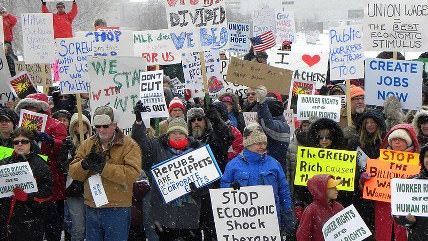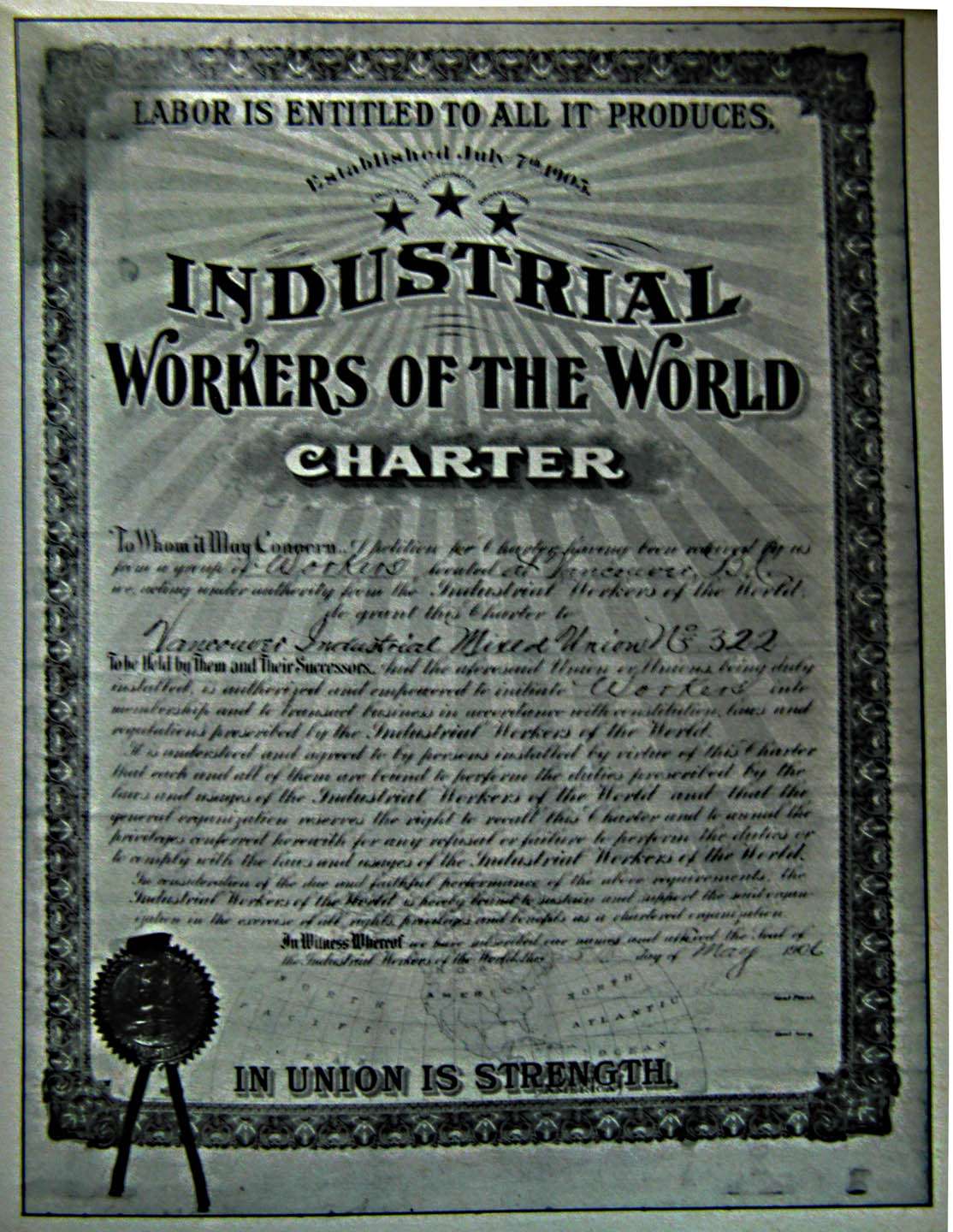Organized Labor Discovers the Joys of Voluntary Association


I've ruffled a few feathers in the past by opposing "right to work" laws that further insert the state into relations between employees and employers by governing agreements between businesses and unions and forbidding closed, union-only shops. Decade after decade, politicians put their thumbs on one side of the scale or the other, and these laws are just a move in their eternal game of "I'm really your friend." But organized labor has struggled in recent years to adapt to changing times. Less then seven percent, and dropping, of private sector workers choose to join a union. Now comes word that labor is adapting tactics that pretty much anybody who isn't viscerally opposed to unions should applaud. They call it alt-labor, but you may know it as voluntary association and free speech.
Writes Robert VerBruggen at RealClearPolicy:
Unions have been in decline for years in the private sector, and now they're losing major political battles in the public sector, too. So, labor groups are trying a new strategy: Instead of going through the normal channels to win workplace elections and represent laborers officially, they are cobbling together as many participants as they can to stage strikes, hold protests, wage public-pressure campaigns, organize boycotts, and file lawsuits against employers. We saw this, for example, in the recent "$15 an hour" fast-food strikes, and in last year's Black Friday protests at Walmart.
VerBruggen points out that these alt-labor groups give up the legal advantages the government has granted formally organized labor unions over the years—compelled membership after successful workplace votes, in some states, as well as mandatory collective bargaining—in order to work flexibly and with a variety of new tactics.
Josh Eidelson describes some of those tactics at The American Prospect:
Twenty years ago, when Rutgers labor professor Janice Fine first set out to count the nonunion groups that were organizing and mobilizing workers, she found just five in the entire country. Today, her tally stands at 214. These groups organize farmworkers and fashion models. They go by names like "workers' centers" and "workers' alliances." Some are rooted in the immigrant-rights movement as much as the labor movement. Lacking the ability to engage in collective bargaining or enforce union contracts, these alternative labor groups rely on an overlapping set of other tactics to reform their industries. The ROC teaches workers their rights and also restaurant skills; advises and publicizes model employers; and helps organize protests like the ones at Capital Grille, making customers aware of what goes on behind the dining room. The ROC also lobbies state and local lawmakers for reforms and helps workers take legal action when all else fails.
So… Less reliance on government-backed coercion, more demonstrations, public relations, and shaming. That is a big step in a positive direction. It's a necessary step, too, with unions representing only 6.6 percent of private sector workers and 35.9 percent of public sector workers. The old model no longer works. Let's hear it for the older model of public debate and economic pressure.
VerBruggen concedes that many critics of unions may still not like what the new labor groups have to say, but that's life. They have the right to say it, and to a greater extent than in recent memory, they're trying to achieve their goals through non-coercive means.
The main problem with unions is not that they agitate for better wages and conditions and say bad things about corporations. It's not even that they sometimes break the law and need to be sanctioned for it. The problem is that for decades the government has been giving these organizations special legal privileges, severely limiting freedom of contract both for businesses and for workers who don't support unions.
The newest element of the labor movement is one that eschews most of these privileges, instead relying on basic constitutional freedoms to achieve its goals. Union critics should see that as a victory.
Good for them.


Show Comments (37)